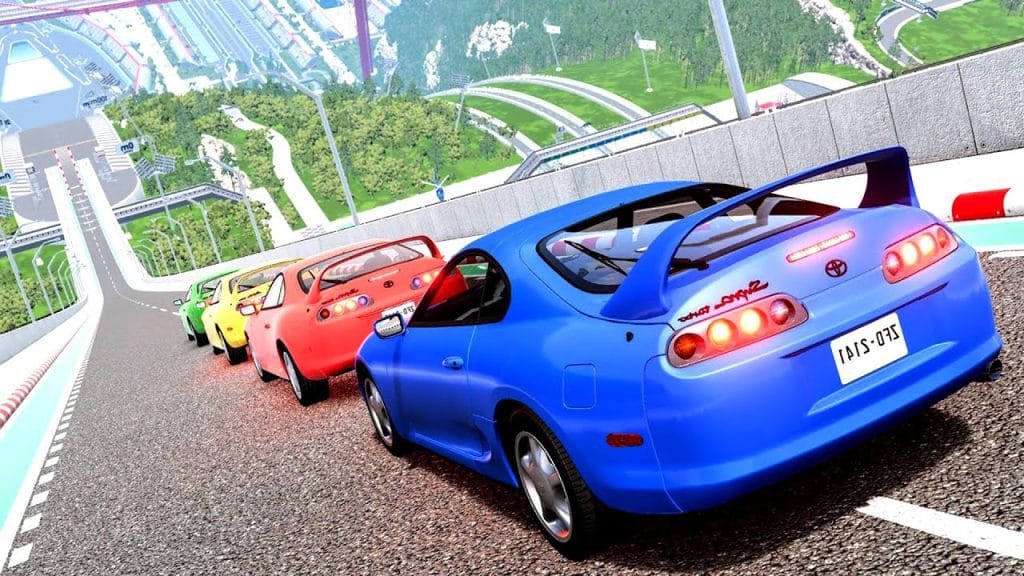The Rise of Racing Simulators: How Toyota Supra Became a Virtual Icon
The Rise of Racing Simulators
Introduction
In the ever-evolving world of gaming, racing simulators have carved a unique niche. They don’t just entertain; they replicate real-world driving experiences using cutting-edge physics engines, vehicle dynamics, and hyper-realistic graphics. The image above perfectly captures this blend of technology and thrill, showcasing several Toyota Supra cars preparing for a high-speed descent in a simulated environment.
Toyota Supra: The Legend Lives On
The Toyota Supra is more than just a sports car—it’s an icon. First launched in the late 1970s and made globally famous in the 1990s, especially through movies and motorsports, the Supra remains a top choice for racing games and simulators. Its balanced performance, aesthetic appeal, and deep-rooted legacy make it a favorite for both developers and players.
Gaming Engines and Realism
Modern racing simulators like Assetto Corsa, Gran Turismo, and Forza Horizon use powerful game engines such as Unreal Engine or Unity 3D. These engines simulate:
Real-time car physics (weight distribution, tire grip, suspension dynamics)
Photorealistic environments (HDR lighting, ray tracing, weather effects)
Responsive AI drivers and multiplayer competition
The image shows how advanced these engines have become, with lifelike road textures, reflections, and vehicle models—all enhancing immersion.
Customization and Tuning Culture
One reason for Supra’s popularity in virtual racing is its rich modding and tuning culture. In many simulators, players can:
Change car colors (as seen in the image)
Modify engines, suspensions, and aerodynamics
Add decals, spoilers, and performance upgrades
This brings a sense of personal expression and realism to the gameplay.
The Future of Racing Simulators
As hardware evolves—with VR headsets, haptic feedback systems, and even motion rigs—racing simulators are nearing professional-level driving simulators. They’re being used not just by gamers, but also by:
Motorsport professionals for training
Automotive companies for R&D
Esports events that draw global audiences
Conclusion
The fusion of technology, design, and driving physics has transformed racing games into a near-real experience. The Toyota Supra, with its timeless appeal, continues to dominate both virtual tracks and real-world hearts. As gaming technology accelerates, we can expect even more immersive and realistic racing experiences in the future.








nice image